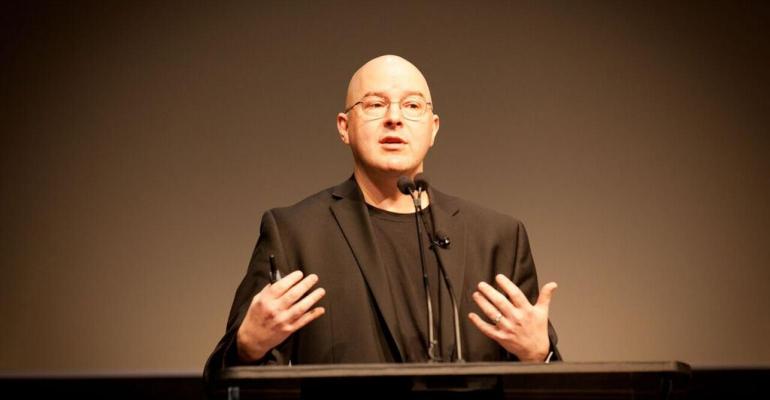Dave Nadig, managing director of research firm ETF.com, has a long tenure in the exchange traded fund industry.
He was director of ETFs at FactSet Research Systems, and at BGI, he helped design some of the first ETFs. It’s no wonder, then, that he’s able to provide trenchant insights on the industry.
His more interesting views now include a defense of ETFs in illiquid markets and a defense of the concentration of stock ownership in large ETFs.
Here’s what he told WealthManagement.com in an interview about those and other ETF topics.
Wealth Management: What are some of your most controversial views about ETFs?
Dave Nadig: One is that ETFs in illiquid markets are far from the apocalypse that they are made out to be. They are enormously valuable tools for price discovery. One example is the floating-rate bond market. The bonds hardly ever trade, especially at the short end. But there’s an enormous appetite to own them.
To form a portfolio of individual bonds is pretty inefficient. It’s a process that takes time. Providing access to someone who wants a small exposure is difficult. But the buying and selling of an ETF like iShares Floating Rate Bond (FLOT) pushes the prices of the underlying bonds up and down, [creating transparency].
If everyone wants out of the bonds because the yield curve is inverted, they can sell FLOT, and then two to three days later, you’ll see the prices [of the individual bonds] coming down. ETFs translate investor sentiment into prices. That’s true anytime you have a liquid ETF tracking illiquid securities, such as high-yield and municipal bonds.
WM: Any other controversial views?
DN: Another myth is that all of the passive stock ownership will somehow destroy corporate governance. The claim is that because the fund managers hold all the securities, they will be nothing more than a rubber stamp.
I believe the exact opposite. If index funds have to hold all the S&P 500 as fiduciaries, they have even more incentive to pay attention to corporate governance, because they can’t sell their shares. State Street and BlackRock have aggressively used the bully pulpit for shareholder and societal goals.
WM: What are the most overlooked benefits and the least known disadvantages of ETFs?
DN: The biggest benefit is that ETFs make it child’s play to put together an institutional quality portfolio. We lose sight of that. I can put together a portfolio in my Schwab account on par with Harvard’s endowment. There’s no distinction between what’s available to institutions and my mom.
What has come with that is an ETF boom. So, the onus is on investors to do their homework on what they own and why. With ETFs, there’s more breadth of things you can get into than mutual funds. And if you get obtuse, you can invest in things you shouldn’t. Also, ETFs come with an additional wrinkle over mutual funds: they have to trade. If you have no idea how to trade, you can get your fingers burned. It’s about basic trader education.
WM: What’s your view of niche ETFs?
DN: Investing is personal. What’s right for me may not be right for you. I personally would never invest in a triple-leverage oil fund, but for some guy day-trading, that may be exactly what he needs. You can find products for all kinds of investors.
If you want to look at your portfolio once every five years, a low-fee beta fund is good. If you want more investing and think you have an edge, have it. But if you’re going to step away [from simple ETFs], you must know what you’re doing and have a reason for doing it.
As we get more and more niche ETFs, there’s a positive side. It puts folks in a due diligence mindset. People will say, “This is an interesting investment idea” and will do research. To the extent that niche products drive investors to ask smart questions that’s good. That doesn’t mean every product is right for all investors—there are some bad ideas in the market—but [plenty] are right for some investors.”
WM: What kind of trends do you see for ETFs in the future?
DN: The main trend for ETFs has been overwhelming flows from underperforming active management [mutual funds], initially into low-cost beta. More recently, the flow is going to low-cost, high-conviction active strategies, increasingly in ETFs. Everyone is coming to play, including all sorts of mutual fund issuers.
That’s generally positive to the extent that issuers play the game like investors expect. To date that’s mostly the case. The concern is that if everyone jumps in, the ETFs will duplicate the low-conviction active management style, and that does no one any good.
Dave Nadig is scheduled to speak at the Inside ETFs conference, running from Feb. 10 to 13.





